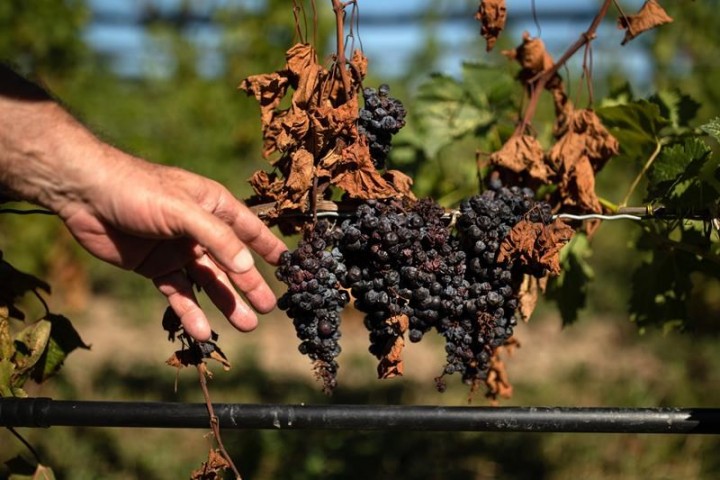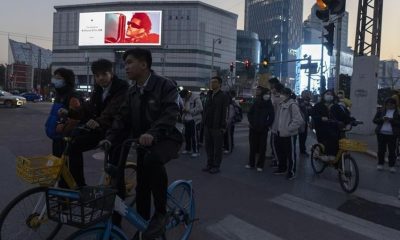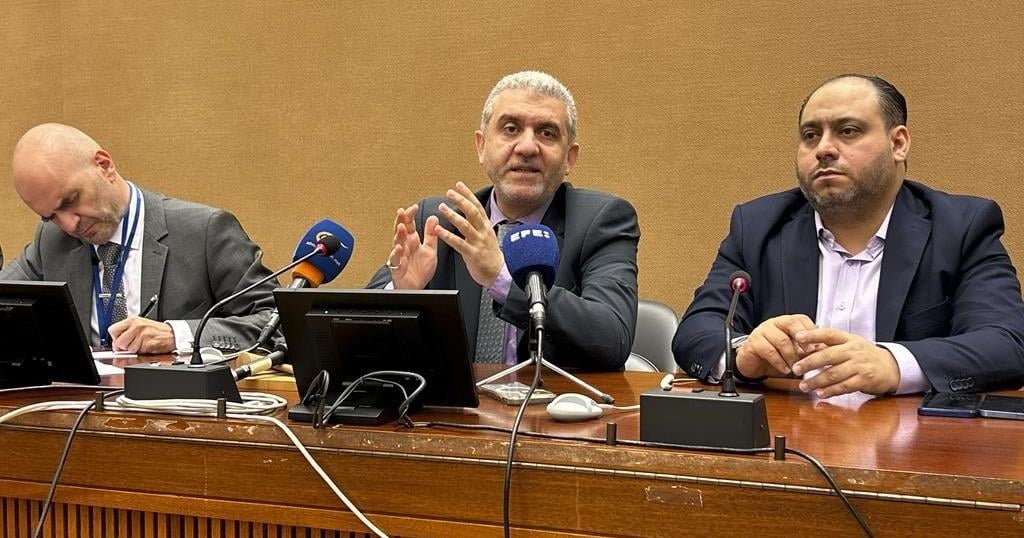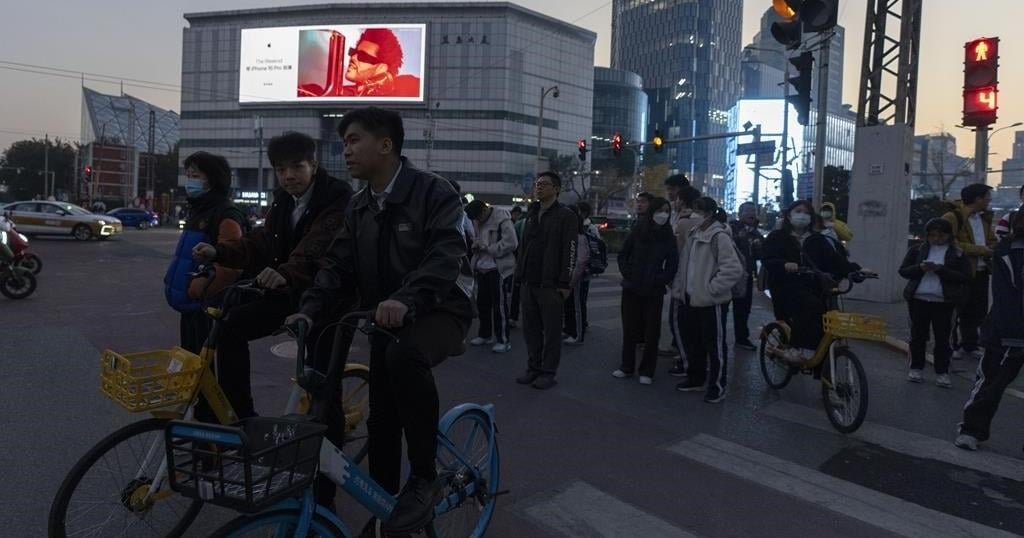NIAGARA-ON-THE-LAKE, Ont. — One extremely cold day last winter was all it took to cause widespread damage to Bill Redelmeier’s wine crops.
Months later, the destruction was in full sight at Southbrook Vineyards, an organic winery in Niagara-on-the-Lake, Ont.
Vine shoots were growing shorter than they would in a typical year if they were growing at all. Black netting used to protect the vines hadn’t been rolled down on several rows considered too spoiled to save. Some leaves were already turning brown, while the grapes on plants that did produce fruit showed damage in their consistency and colour.
They’re all signs of vascular injury inside the plants stemming from the mid-January cold snap — which was catastrophic not just for Redelmeier, but for grape growers across Niagara Region’s wine country in southern Ontario.
“It takes an hour. That’s all the time it takes,” Redelmeier said as he surveyed the vineyard in September.
The freezing event that Redelmeier estimated has reduced his winery’s output by 75 percent this year, and likely 50 percent next year, is one example of extremes in weather that Ontario’s wine producers are contending with amid a changing climate.
Redelmeier described the phenomenon as “wild swings” in weather that farmers are struggling to predict and prepare for.
“We assume that everything that’s going to happen is somewhere in our memory. We’re now getting stuff that’s outside of our experience,” he said.
Crop loss from the cold snap forced adjustments for Redelmeier’s business and other competitors in the area. With only so much wine available last summer, Southbrook had to choose whether to cut back on selling to the LCBO — the Crown corporation that distributes liquor in the province — and other large retailers or to their own customers. They decided to focus on sales to their loyal base.
Extreme cold may not immediately come to mind when it comes to the effects of climate change — a conversation that often centres on increases in temperature. But experts and industry stakeholders say extreme, unpredictable swings in weather are having a big effect on Ontario’s wine industry and forcing producers to respond with costly pivots.
“Ontario is no different than anywhere else in the world. When we look at climate change, probably the biggest effect that we’re going to see is the extremes in weather,” said Brock University grapevine biologist Jim Willwerth.
Climate change is challenging grape growers around the world with extreme weather ranging from hail to drought to smoke from forest fires. Cold winters are nothing new to grape growers in Ontario, Willwerth said, but the low temperatures that hit last winter followed a period of relatively milder days and an unusually rainy fall season. That meant the sensitive grape plants weren’t able to build up the cold tolerance they need to survive the winter, he explained.
All farmers are coming up against increasingly extreme weather events, but Willwerth noted that grapes are particularly sensitive because slight changes in climate can affect flavour.
“Grapes might be the canary in the coal mine when it comes to climate change,” he said.
Ontario winemakers have options when it comes to mitigating weather extremes, though they are expensive.
Some use a technology called geotextiles, covering the vines with what is essentially a blanket to warm the crops during intense cold periods.
Others use wind machines – a technology that warms the air around the crops during extreme cold to protect from the most severe damage.
For Redelmeier, wind machines are a better option for his wallet given the layout and specific needs of his vineyard. Noisy, skinny windmills were slowly turning between the vines at Southbrook this September.
Redelmeier estimates the costly technology keeps temperatures slightly warmer than -25 C, and likely saved many of the plants from permanent damage that would have required ripping them out and replanting.
“It could have been much worse,” he said.
Some growers, meanwhile, are faced with geographic challenges to the available technologies.
Ed Madronich of Flat Rock Cellars in Jordan Station, Ont., west of St. Catharines, also saw damage to crops during last year’s extreme cold. He’s considering investing in geotextiles, but wind machines aren’t an effective option at his vineyard due to the sloping layout.
Other efforts aimed at mitigating extreme weather swings like building up inventory to prepare for unexpected weather-related setbacks all add up to significant business costs, Madronich said.
“Climate change is definitely having an impact, and it is costing farmers more money to be able to mitigate the challenges that climate change is putting on us,” Madronich said by phone.
Brock University’s Cool Climate Oenology and Viticulture Institute, where Willwerth and other experts conduct research relevant to Canada’s wine industry, has studied the economic impact of severe weather on Ontario wineries. A study from 2014 ran a scenario that determined vine loss from a cold event would result in $55.7 million in losses to grape growers over five years, including lost sales and the cost of renewing and replacing vines.
Invasive pests migrating further north as the climate warms also pose a threat to Ontario vineyards, Willwerth said, pointing to the spotted lanternfly as an example. The species, which is known to feed in huge numbers on grapevines, has been challenging wine producers in the United States, and the Canadian Food Inspection Agency recently asked people to report sightings of the insect after it was seen near the Canadian border.
Debbie Zimmerman of the Grape Growers of Ontario said there is some money available from federal and provincial governments to help farmers rebound from weather damage. But she said more support is needed given the challenges being posed by climate change, including support for adaptation research that’s already underway.
“This is not going away,” she said of the weather extremes. “We’re doing our part trying to prepare for the future. It’s the support that we need, financially, from the government to help us get through these challenges.”
Back at Southbrook, Redelmeier tastes a 2019 Merlot from his vineyard. The red wine variety won’t be produced in 2022 due to the extensive damage to the vineyard.
It’s one example of how wine, a product tied to the earth at the specific time and place it was produced, can tell the story of climate change, Redelmeier said.
“It’s time in a bottle,” he said.
This report by The Canadian Press was first published Oct. 13, 2022.
Holly McKenzie-Sutter, The Canadian Press
Related


































